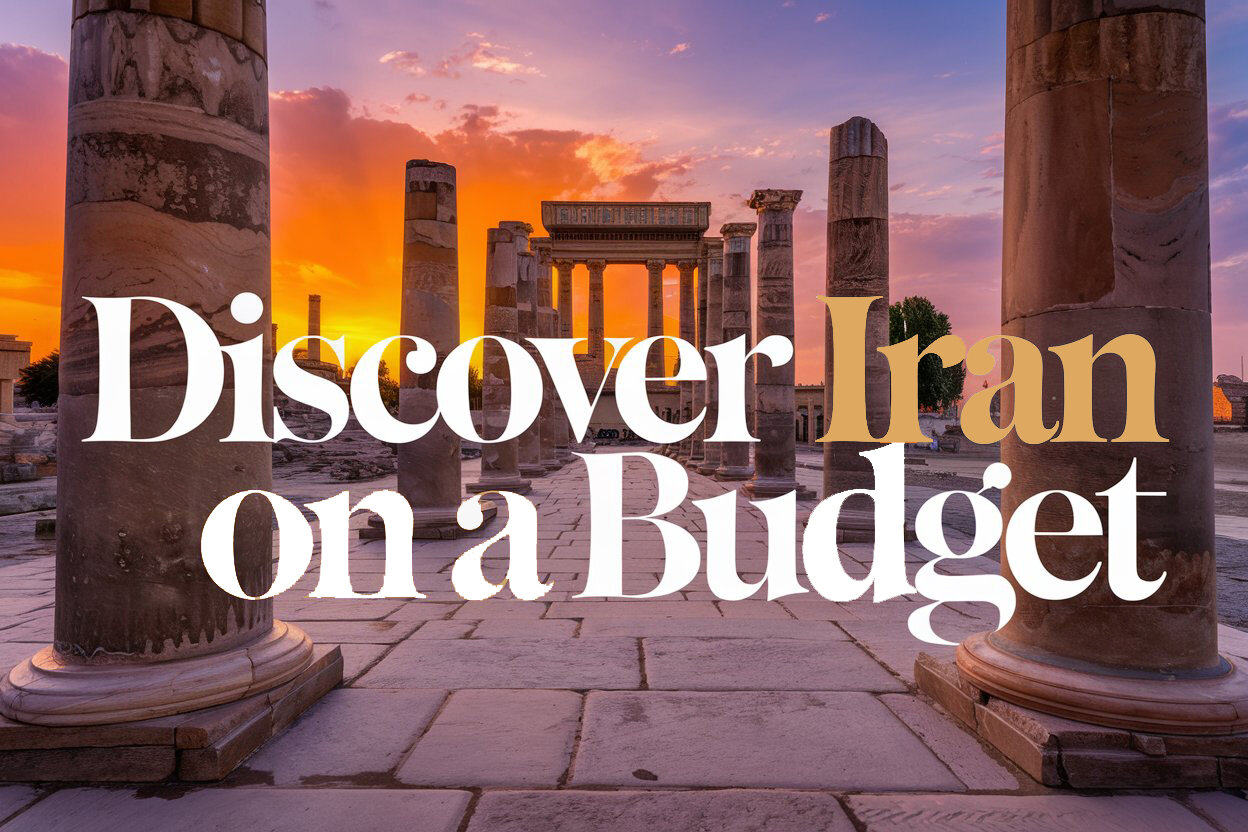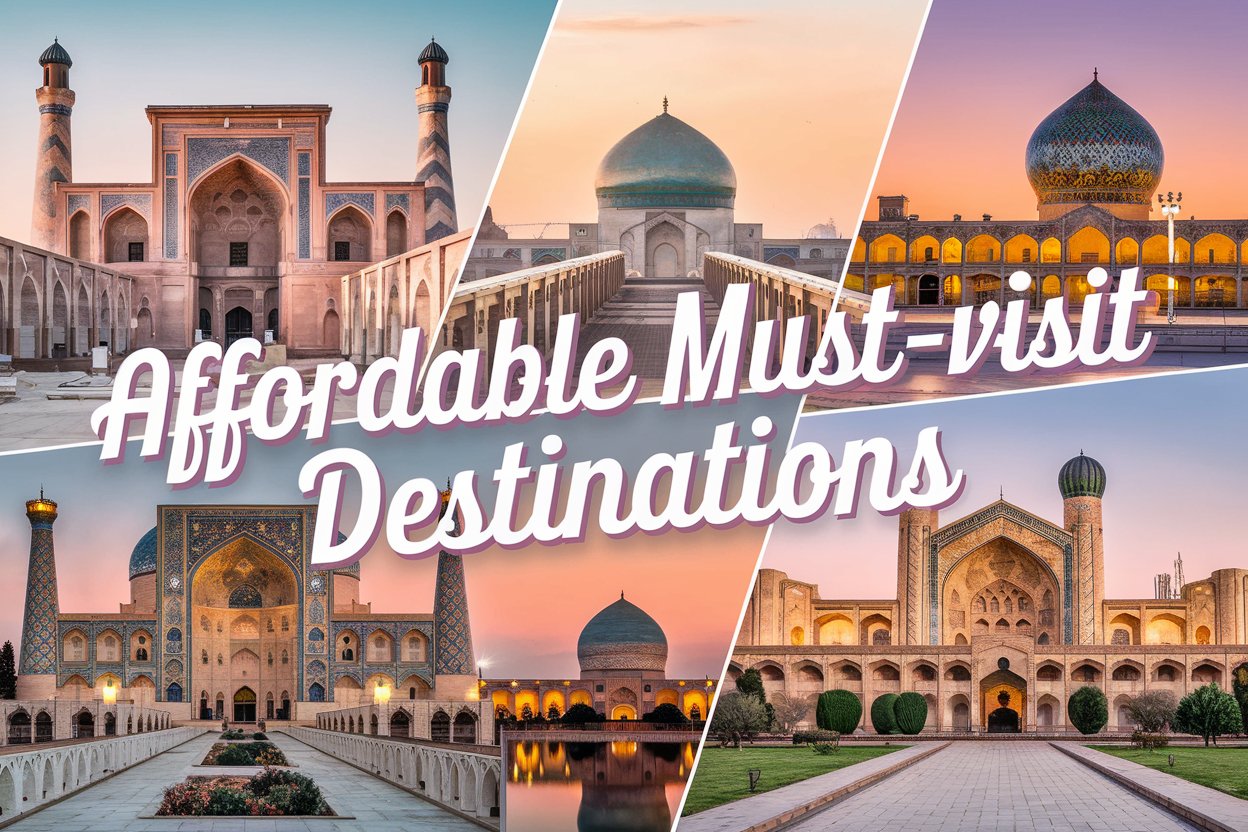Comprehensive Travel Guide to Iran with the Lowest Cost

Exploring Iran offers a perfect blend of history, culture, and stunning landscapes. With some smart planning, you can enjoy a budget-friendly experience without compromising on the richness of your trip. Here’s an extensive guide to traveling through Iran affordably, touching on everything from the best times to visit to accommodation, transportation, and safety.
Cheap Travel Guide to Iran
Choose the Best Travel Time
Timing your trip to Iran can significantly impact your budget. The shoulder seasons—spring (March to May) and autumn (September to November)—are optimal times for budget travelers. The weather is pleasant, making it ideal for outdoor exploration and sightseeing without the inflated prices seen during peak tourist seasons. Visiting during winter (December to February) is also a viable option if you don't mind the cold in northern regions, as it can significantly reduce costs on accommodations and flights due to lower tourist activity. Conversely, avoid traveling during Nowruz (Iranian New Year, late March) when travel costs skyrocket due to increased domestic travel.

Economic Tourism Destinations
Exploring Iran's diverse regions can be done on a budget, thanks to affordable entry fees and the availability of local accommodations. Here are some top economic destinations:
-
Tehran: Iran’s capital is a good starting point. Visit places like the Golestan Palace, Azadi Tower, and bustling Tehran Bazaar. The city offers a range of affordable street food options, such as kebabs, falafel, and local stews.
-
Isfahan: Known for its stunning Naghsh-e Jahan Square, ancient bridges like the Si-o-Se-Pol, and intricate mosques, Isfahan provides a rich cultural experience. Budget-friendly guesthouses near the historic district can be found for as little as $10 to $20 per night.
-
Shiraz: Home to the ancient ruins of Persepolis and beautiful Persian gardens, Shiraz is both culturally significant and affordable. Local transportation and budget hotels make it easy to stay within a tight budget.
-
Kashan: This city is often overlooked by tourists, yet it offers beautiful Persian architecture and historical houses, like the Borujerdi House. Stay in traditional guesthouses that offer a cozy, authentic experience at low costs.
-
Yazd: The desert city of Yazd, with its windcatchers, adobe houses, and Zoroastrian sites, presents a budget-friendly option. Hostels and local eateries offer affordable food and lodging.
If you want to stretch your budget further, consider venturing into less popular destinations like Kerman, Qeshm Island, or Tabriz, where prices for accommodation and food are typically lower.
Preparation of Visa and Necessary Documents
Most travelers need a visa to enter Iran. Fortunately, the process has become more streamlined in recent years. Citizens from over 180 countries can get a visa on arrival (VOA) at major airports such as Tehran Imam Khomeini International Airport and Shiraz International Airport, allowing for a stay of up to 30 days. However, travelers from the U.S., U.K., and Canada must arrange their visit through an official tour operator, as they cannot travel independently. Always ensure your passport has at least six months of validity remaining beyond your travel dates.
The cost of a tourist visa varies, but it typically ranges from $50 to $75, depending on your nationality. Applying for a visa through an authorized tour agency can also be a faster option, although it may incur an extra service fee. For peace of mind, consider carrying printed copies of your travel insurance, passport, and other documents.
Airplane Tickets and Domestic Transportation
For an affordable start to your journey, look for budget-friendly plane tickets through airlines like Turkish Airlines, Pegasus, or Qatar Airways, which frequently offer good deals on flights to Tehran. Booking several months in advance and using fare comparison websites such as Skyscanner can help secure the best rates. For example, you can often find flights for as low as $300 from Europe.
Once in Iran, domestic travel is economical and efficient. Options include:
-
Buses: Iran has a well-developed intercity bus system. VIP buses with comfortable seats and refreshments are available for around $10 to $15 for long-distance trips.
-
Trains: While slower, trains are a scenic and budget-friendly alternative. Night trains between major cities like Tehran, Mashhad, and Isfahan offer a unique travel experience, costing around $20 for a sleeper berth.
-
Domestic Flights: For quick travel between cities, local airlines like Iran Air and Mahan Air offer affordable flights starting at $40. This is especially useful for reaching distant regions like Kish Island.
Economic Residences
Accommodation in Iran ranges from luxury hotels to budget-friendly hostels and guesthouses. For affordable lodging, consider:
-
Guesthouses and Hostels: Iran’s local guesthouses offer authentic experiences with prices starting as low as $10 per night in smaller cities. Hostelworld is a good option for finding budget hostels, while 1stQuest allows for online hotel bookings.
-
Traditional Houses: In cities like Kashan and Yazd, traditional houses converted into guest accommodations provide cultural charm at competitive rates.
-
Couchsurfing: While controversial in some places, Couchsurfing is popular in Iran and offers an opportunity to stay for free while gaining insights into Iranian culture.
-
Hotels: Affordable hotels can be found in most cities for under $30 per night. It’s advisable to make a hotel reservation in Iran in advance, especially during the high season or festivals.
Safety Tips for Traveling to Iran
Iran is considered safe for tourists, with a low crime rate and welcoming locals. Here are some important safety tips:
-
Currency: Due to international sanctions, credit cards are rarely accepted in Iran. Cash is the main payment method, so bring enough foreign currency (preferably USD or Euros) and exchange it at authorized exchange offices or banks. Always carry a copy of your passport when exchanging money.
-
Dress Code: Respect Iran's dress code, which mandates modest clothing. Women should cover their hair, arms, and legs, while men are discouraged from wearing shorts in public.
-
Transportation Safety: Opt for official taxis or ride-hailing apps like Snapp to avoid potential scams. When using taxis, ensure the meter is on or agree on a fare before starting your journey.
-
Health Precautions: While Iran is generally safe for tourists, it’s wise to purchase travel health insurance that covers medical emergencies. Tap water is safe to drink in most cities, but bottled water is widely available if you prefer.
-
Internet Access: Iran has some restrictions on social media and websites. Download a VPN app before arriving to access blocked sites like Instagram and WhatsApp.
Understanding Iranian Currency
Iran’s currency is the Rial, but prices are often quoted in Tomans (1 Toman = 10 Rials). This can be confusing for tourists, so always clarify which currency is being used when making purchases. Using a currency conversion app on your phone can help avoid misunderstandings.
Cultural Etiquette and Interaction with Locals
Iranian hospitality is renowned, and you may find yourself invited for tea or meals. It is considered polite to initially decline an offer out of courtesy before eventually accepting. Remember, public displays of affection are frowned upon, and alcohol consumption is strictly prohibited.
Exploring Rural and Off-the-Beaten-Path Destinations
Iran’s less touristy destinations, such as the Alborz Mountains, Lut Desert, and the historic villages of Masuleh and Abyaneh, offer an authentic experience for travelers. These regions are more affordable, and homestays provide a closer connection to local culture. Expect to pay as little as $5 to $15 per night in these areas.
By following this guide, you can explore Iran affordably while experiencing the country’s rich culture, history, and natural beauty. From securing budget-friendly plane tickets to finding cheap accommodations and understanding local customs, a memorable trip awaits you.
Leave a Comment